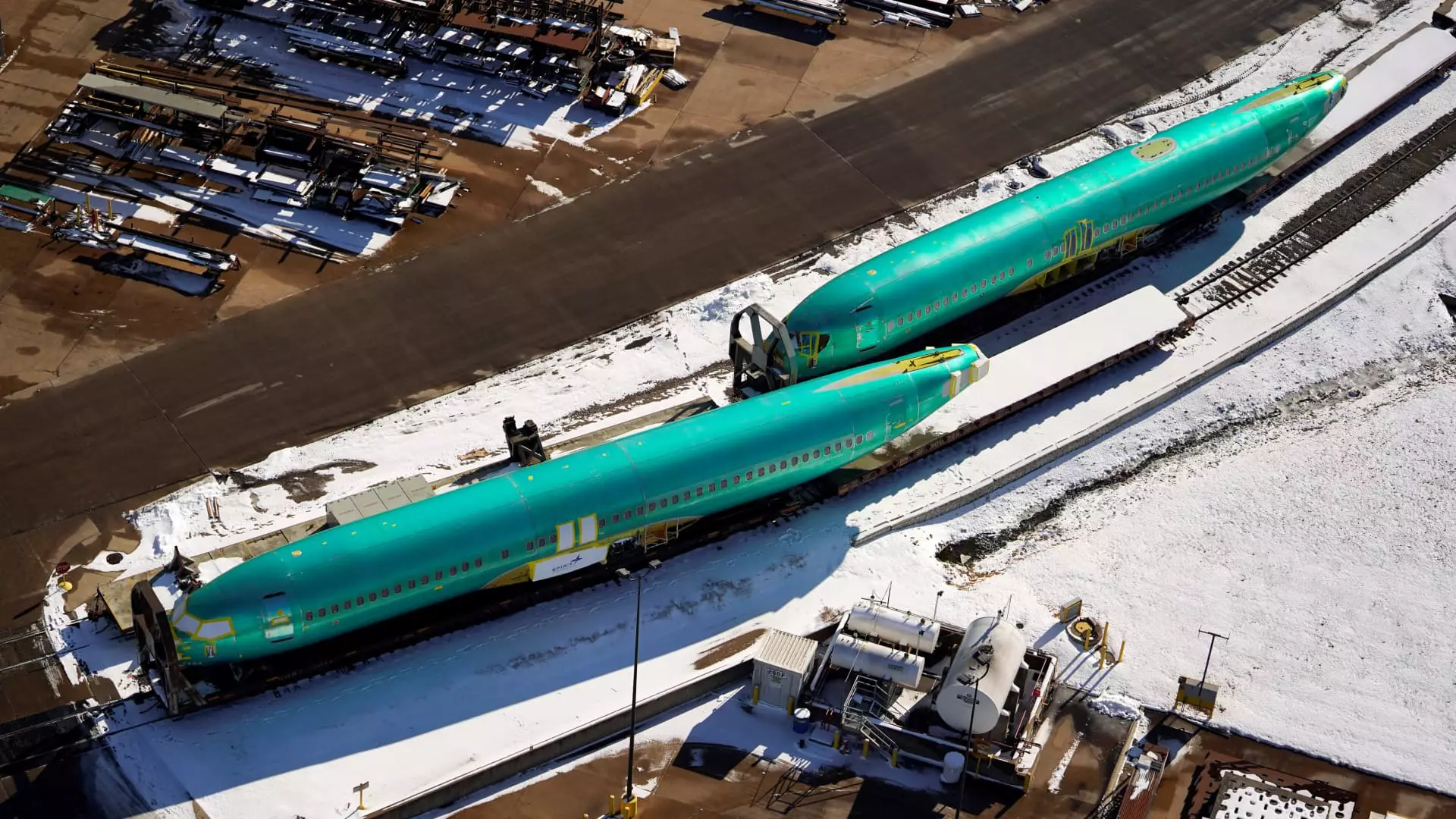The aviation industry is experiencing turbulent times, particularly with Boeing as it grapples with significant strikes that are creating ripples throughout its supply chain. Recently, Spirit AeroSystems, a key supplier for Boeing, announced that it would temporarily furlough approximately 700 of its employees. This decision comes on the heels of an ongoing strike by Boeing machinists, which has persisted for six weeks, marking a critical period as the company navigates through rising financial pressures. This situation not only underscores the difficulties within Boeing’s infrastructure but also raises questions about its long-term strategic direction.
The strike began on September 13, when over 32,000 Boeing workers walked off the job after rejecting a tentative labor agreement. This mass exodus has intensified Boeing’s existing financial strain, presenting a formidable challenge for CEO Kelly Ortberg, who is relatively new to the role. His leadership is being tested as he faces a crucial earnings call amid mounting losses and uncertainties. To address the urgent need for cost reductions, Ortberg recently announced that Boeing plans to reduce its workforce by 10%, equivalent to approximately 17,000 positions, indicating the scale and severity of the challenges the company faces.
The furloughs at Spirit AeroSystems affect about 5% of its U.S. workforce and are primarily centered around its largest facilities in Wichita, Kansas. According to Spirit spokesman Joe Buccino, the workers on furlough are primarily engaged in the 777 and 767 aircraft programs, both of which are currently facing delays due to the strike. While Spirit has managed to build up a significant inventory for these programs, the cessation of work prompted by the strike spells trouble, complicating the company’s capacity to fulfill future Boeing orders and maintain operational stability.
Boeing’s operational strategy is under scrutiny as the company grapples with the consequences of both labor disputes and production delays. Alongside the decision to furlough workers, Boeing has announced plans to terminate commercial production of the 767 by 2027 and to postpone the debut of the much-anticipated 777X until 2026. This not only signifies a strategic pivot but also reveals the company’s pursuit of liquidity through debt or equity measures to bolster its financial standing.
Moving forward, the sustainability of Boeing and Spirit AeroSystems faces uncertainty. There are indications that if the machinists’ strike extends beyond November, additional layoffs and furloughs may be necessary. Such a scenario would further strain the already fragile relationships across Boeing’s supply chain. The anticipated acquisition of Spirit by Boeing, slated to close in mid-2025, may also be affected by ongoing labor issues, potentially altering the dynamics of their partnership. The current situation is a stark reminder of the interconnected nature of the aviation industry and the cascading effects that disruptions can generate across multiple tiers of production and labor.


Leave a Reply